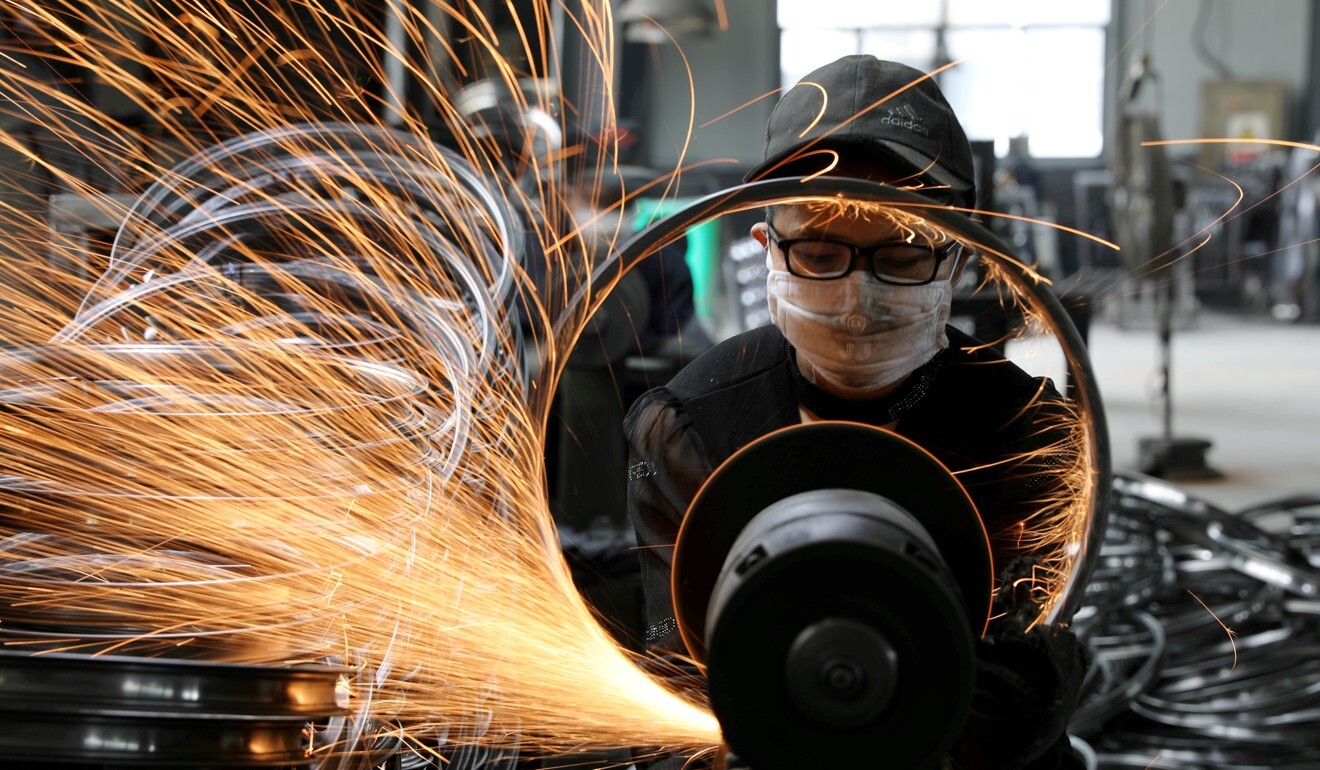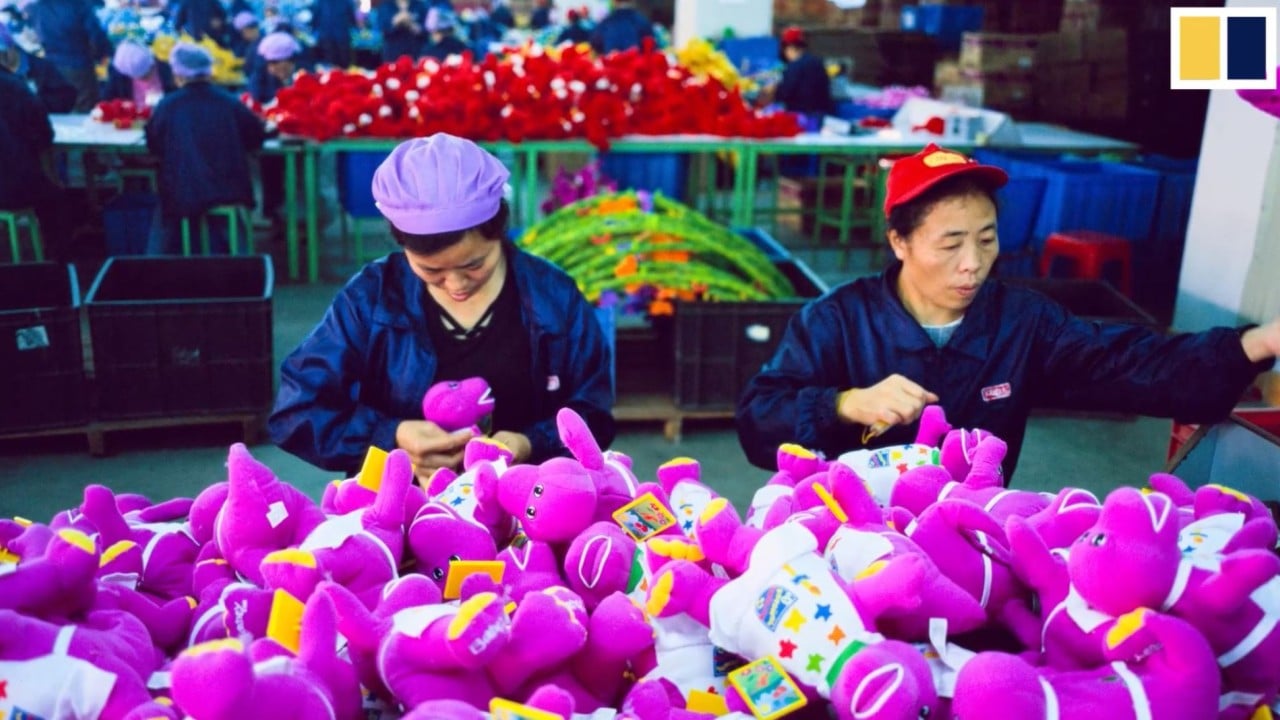
Shanghai Composite Index tumbles the most since China imposed coronavirus lockdowns five months ago
- Hong Kong stocks see steep losses; SMIC plunges 25 per cent, while its A shares debuting on the mainland shoot up more than 200 per cent
- Kweichow Moutai falls the most in 20 months
Overheated China stocks saw their biggest daily percentage tumble in more than five months, as traders scrambled for the exits on fears of more cooling measures and tighter monetary policy.
The panic selling left the Shanghai Composite Index as the worst percentage performer out of 93 major global indices on Thursday, according to Bloomberg data.
Hong Kong – where Chinese stocks account for more than 50 per cent of the market capitalisation of the Hang Seng Index – did not escape the carnage.
Upbeat data showing China is recovering from the worst of the coronavirus sparked fear that Beijing will tighten the liquidity taps. This came on top of recent warnings and steps by Chinese authorities to cool markets, fearing anything akin to a repeat of the 2015 meltdown in the country that wiped out US$5 trillion in market capitalisation and left many retail investors terrified to return for a long time.

The Shanghai Composite Index fell 4.5 per cent. That was its single biggest fall since February 3, when traders returned from an extended and chaotic holiday as lockdowns in Wuhan – ground zero of the outbreak – and other cities aimed at controlling the spreading coronavirus disrupted travel and upended businesses. The Shanghai Composite fell 7.7 per cent that day.
The Shenzhen Composite Index fell 5.2 per cent, led down by consumer staples, health care and information technology stocks. Just 148 out of nearly 2,300 trading on the index advanced.
The Hang Seng fell 2 per cent – about 511 points – to 24,970.69, led by health care, information technology and consumer discretionary stocks. That meant it fell through the 25,000 resistance level for the first time this month.
Deep losses were seen in new economy stocks that have soared this year as investors piled into them on expectations they will outperform in the post-coronavirus world.
Index heavyweight Tencent saw its biggest daily drop in four months, collapsing 5.5 per cent to HK$513, while Alibaba, the e-commerce giant and owner of the South China Morning Post, plunged 4.2 per cent to HK$233.20.
Geely Automobile fell nearly 12 per cent – the most in more than five years, according to Bloomberg data – and other car makers saw big losses too, following recent gains amid signs of recovery in car sales as consumers returned to showrooms.
“As China’s GDP was better than expected, the market worries the Chinese government and [central bank] will tighten liquidity in the second half,” said Alan Li, portfolio manager at Atta Capital.
Chinese stocks have been on fire of late, with the Shanghai benchmark rising in six of the past seven weeks, including last week’s five-session gain of 7.3 per cent. As of Wednesday’s close, they had shot up about 15 per cent in July.

01:38
What is gross domestic product (GDP)?
But the surge has sparked comparisons to the rapid gains in 2015 that led to a US$5 trillion market wipeout. Authorities have taken some steps to cool trading, including targeting margin trading, which was largely blamed for the 2015 meltdown.
On Thursday, the state-run People’s Daily wrote in an editorial that the high price of liquor maker Kweichow Moutai was causing corruption in government, and that the purpose of alcohol is for drinking, not for speculation.
The stock – always one of the most popular on the mainland as well as on the Stock Connect – fell 7.9 per cent, its biggest drop in 20 months. It had soared to a jaw-dropping 1,781.99 yuan on Monday, shooting up about 22 per cent this month as of Monday’s close, before it began weakening.
“People believe the government is coming out to calm down the overheated stock and property market,” Li said.
But in Hong Kong, where its shares have skyrocketed this year, SMIC plummeted 25 per cent in its biggest move since its IPO in 2004, according to Bloomberg data.
In addition to worries the improving China economy would lead to tighter monetary policy, US-China tensions continue to rise and the coronavirus continues to roil the US, the world’s largest economy, with no vaccine yet available.
But economists were concerned that retail sales were worse than expected, underscoring the fact that consumer demand has yet to return and the economy is not yet out of the woods, after being hammered by the coronavirus outbreak in January. Retail sales fell by 1.8 per cent, less than in May, but below expectations of a 0.5 per cent rise.

